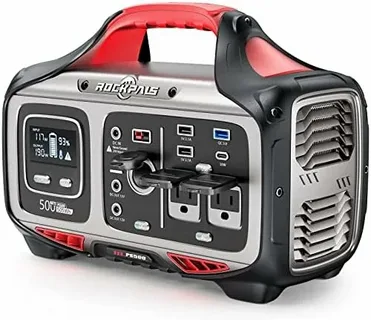In a world increasingly focused on sustainable energy solutions, portable solar panels have emerged as a convenient and eco – friendly way to harness the sun’s power on the go. Whether you’re an avid camper, a digital nomad working remotely, or someone looking for an emergency power backup, a portable solar panel can be a valuable asset. However, with a wide variety of models available in the market, each with different features and performance levels, choosing the most efficient one for your needs can be a challenging task. This article will guide you through the essential factors to consider, enabling you to make an informed decision and select the perfect portable solar panel.
How to Choose the Most Efficient Portable Solar Panel for Your Needs
Determine Your Power Requirements
The first step in choosing an efficient portable solar panel is to determine your power needs. Consider the devices you plan to charge with the solar panel. For example, charging a smartphone typically requires less power compared to a laptop or a portable refrigerator. Make a list of all the devices and note their power consumption in watts (W). Calculate the total power required to charge these devices simultaneously or over a specific period. If you only need to charge small electronics like smartphones and tablets, a solar panel with a lower wattage output, such as 5 – 15W, might suffice. But for power – hungry devices, you’ll need a panel with a higher wattage, perhaps 20W or more. Understanding your power requirements will help you narrow down your options and focus on panels that can meet your energy demands efficiently.
Consider Conversion Efficiency
Conversion efficiency is a crucial factor when evaluating portable solar panels. It refers to the percentage of sunlight that the panel can convert into usable electricity. Higher conversion efficiency means the panel can generate more power from the same amount of sunlight, making it more effective and efficient. Look for solar panels that use advanced photovoltaic cell technologies, such as monocrystalline or thin – film cells. Monocrystalline cells are known for their high conversion efficiency, often ranging from 15% to 22%, while thin – film cells offer flexibility and are suitable for certain applications, with efficiencies typically between 10% and 15%. Comparing the conversion efficiency ratings of different panels can give you a good indication of their performance potential.
Evaluate Size and Weight
Portability is one of the main advantages of portable solar panels, so size and weight are important considerations. If you plan to carry the panel during hiking trips or other outdoor activities, a lightweight and compact model will be more convenient. However, keep in mind that smaller panels usually have lower power output. Strike a balance between portability and power generation capacity based on your usage scenarios. Some panels are foldable, which allows them to be easily packed into a backpack. Others come with built – in handles or are designed to be attached to bags or tents. Consider how you’ll transport and use the panel in the field to find the right size and weight combination for your needs.
Assess the Build Quality and Durability
Since portable solar panels are often used outdoors, they need to be able to withstand various weather conditions and rough handling. Look for panels made from high – quality materials that are durable and weather – resistant. The panel should have a sturdy frame and be protected by a layer of tempered glass or a durable polymer coating to prevent damage from scratches, impacts, and UV rays. Check for features like water – resistance or waterproofing, especially if you’ll be using the panel in wet environments. A well – built solar panel will not only last longer but also maintain its efficiency over time, ensuring a reliable power source for your devices.
Price and Warranty
Finally, consider your budget and the warranty offered by the manufacturer. Portable solar panels are available at a wide range of price points. While it might be tempting to opt for the cheapest option, keep in mind that lower – priced panels may have lower conversion efficiency, poorer build quality, or limited features. Look for a panel that offers a good balance between price and performance. Additionally, a longer warranty period indicates the manufacturer’s confidence in the product’s quality. A typical warranty for portable solar panels ranges from 1 to 5 years. Choosing a panel with a reliable warranty can give you peace of mind and protect your investment in case of any defects or malfunctions.
Conclusion
Choosing the most efficient portable solar panel for your needs requires careful consideration of your power requirements, conversion efficiency, size and weight, build quality, price, and warranty. By taking the time to evaluate these factors and compare different models, you can find a solar panel that not only meets your energy needs but also offers reliable performance and durability. Whether you’re exploring the great outdoors or preparing for power outages at home, a well – chosen portable solar panel can be a sustainable and practical power solution, allowing you to stay connected and powered up wherever you are.

